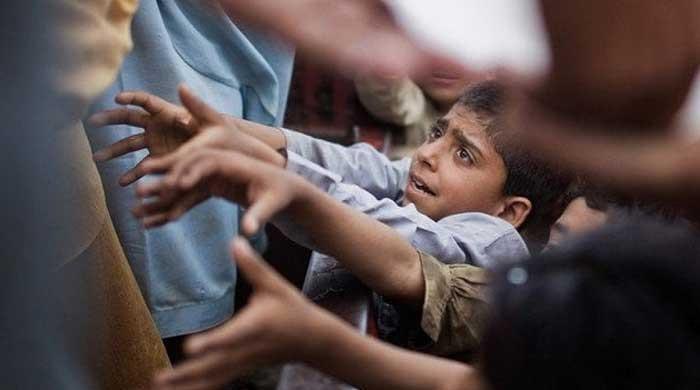“An Unequal Future: Asia’s Battle for Life and Power,” Oxfam’s recent report reveals an entire continent gripped by unprecedented inequality, with Pakistan at its epicenter.
The country’s economic and political model, and therefore also its response to climate change, is constructed in such a way as to spectacularly enrich a few at the top while keeping the rest in poverty, informal work and dependency.
The richest 10% of South Asians own around 77% of the income and wealth, while the poorest half live on a meager 12-15%. This is today’s Pakistan, in which the ancient nobility has been replaced by political dynasties, an army and business barons.
More than 80% of the workforce works in what is known as the informal economy – without contracts, without protection. The poor are massively taxed by inflation through soaring food and fuel prices, but the rich benefit from immunity, concessions and an untouchable agricultural tax shield. The tax-to-GDP ratio is less than 10%, among the lowest in Asia, and inequality is inherent in the system.
The hidden constitution of Pakistan is its external debt. In 2022, debt to developing Asian countries reached around $443 billion, of which Pakistan’s share led to sharp cuts in health, education and social protection. More than 42% of Pakistanis today live below the poverty line, and each “reform” imposed by the IMF plunges millions more people into suffering.
Debt service exceeds what is spent on schools and hospitals, mortgaging the future of the nation in the hands of creditors and local elites. In reality, austerity is a war on the poor.
The climate crisis amplifies this injustice. Floods in 1998 and this year submerged the lives of 33 million Pakistanis, but aid then largely materialized in the form of new loans. According to Oxfam, low-income countries like Pakistan currently spend around twice their entire climate finance allocation on debt servicing. The rich pollute and the poor drown.
The richest 1% in South Asia produce 17 times more carbon than the poorest half. In Pakistan’s walled suburbs, energy-guzzling mansions and fleets of SUVs are symbols of climate apartheid: those primarily responsible for global warming pay more to escape unscathed; farmers lose their land while women walk further to fetch water; Families in mountain villages are melting as glaciers melt into rivers that are now too wet or too dry.
Inequality also extends to technology. In Asia, 83% of people living in urban areas are online; the figure is 49% for those residing in rural areas and Pakistan does worse. Internet is still only available in cities and some privileged schools, while slow speeds and high data prices continue to exclude millions.
The 2023 internet outage alone cost $17 million, ruining the livelihoods of freelancers and small business owners. For the poor, disconnection means exclusion from education, employment and even state welfare systems, now digitalized but inaccessible.
Women also constitute the heaviest “prize” that this order has been able to exploit.
They carry out up to four times more unpaid care work than men and are 41% less likely to use mobile internet. Oxfam estimates that women’s full participation in the workforce could increase Asia’s gross domestic product by $4.5 trillion per year. Yet patriarchy in Pakistan keeps women landless, voiceless and disposable. When it comes to absorbing the pain of an economic or climate shock, it is women – particularly in Sindh and Balochistan – who shoulder the burden.
The report warns that rising inequality is undermining democracy across Asia. In Pakistan, plutocracy reigns. Billionaires are served by politicians, business empires are run by uniformed people, and profits are negotiated by bureaucrats. Each regime, whether civil or military, defends the same class interests. “Stability” and “investment confidence” always refer to the continued control of elites while the working poor are deprived of social protection and rights.
Elections change faces, not fortunes. Surveillance expands as civic space closes. Even education and access to the Internet have become privileges – conditional on submission.
The path forward for Oxfam should be obvious: progressive taxation, universal health, education and social protection systems for informal workers. A 60% tax on the richest 1% and an annual wealth tax of 2-5% could finance needed services and climate adaptation. But Pakistan’s ruling class would not tolerate redistribution that would undermine its privileges.
A skyline of luxury towers has sprung up alongside thirsty neighborhoods, and hundreds of thousands of Sindh’s slave peasants still work for landlords who now speak the language of “green growth” fluently. This is modern slavery.
Pakistan’s misfortune is not scarcity but theft. Its forests, rivers and workers provide for the needs of the state but have no say. If privileges are not disrupted and public systems are not rebuilt, the nation will continue to be an economy of masters in designer suits served by slaves in rags.
Yet hope persists. Valuing education, healthcare and connectivity as public rights could begin to reverse the downward spiral. Climate justice starts at home: end pollution for profit and direct resources to those who rebuild from ruin. The question is simple but decisive: will Pakistan remain a citadel of privilege or will it become a republic of equals?
The writer is an expert on climate change and sustainability and the founder of the Clifton Urban Forest. He posts @masoodlohar and can be contacted at: [email protected]
Disclaimer: The views expressed in this article are those of the author and do not necessarily reflect the editorial policies of PK Press Club.tv.
Originally published in The News




